Hispanic Heritage Month is celebrated every year from September 15 to October 15. It gives the space to highlight the community’s diversity and celebrate their cultures. We’ve shared past blogs highlighting important figures and resources on Hispanic Heritage Month, and this year, we sat down with a few of our employees to share their personal stories about their Hispanic heritage and what the month means to them. While the stories were varied, we also heard a lot of resounding similarities: the richness of the cultures, the importance of family, and how much overlap there is between foods and cultures within the Hispanic community.
Joe Colon, Associate Account Strategist
1. Can you share a bit about your own cultural identity?
I am a Puerto Rican from the Bronx. A lot of my cultural identity has been shaped by Spanish television and my family, like my great-grandmother, who immigrated to the US from Puerto Rico. A lot of our food and music influence comes from her.
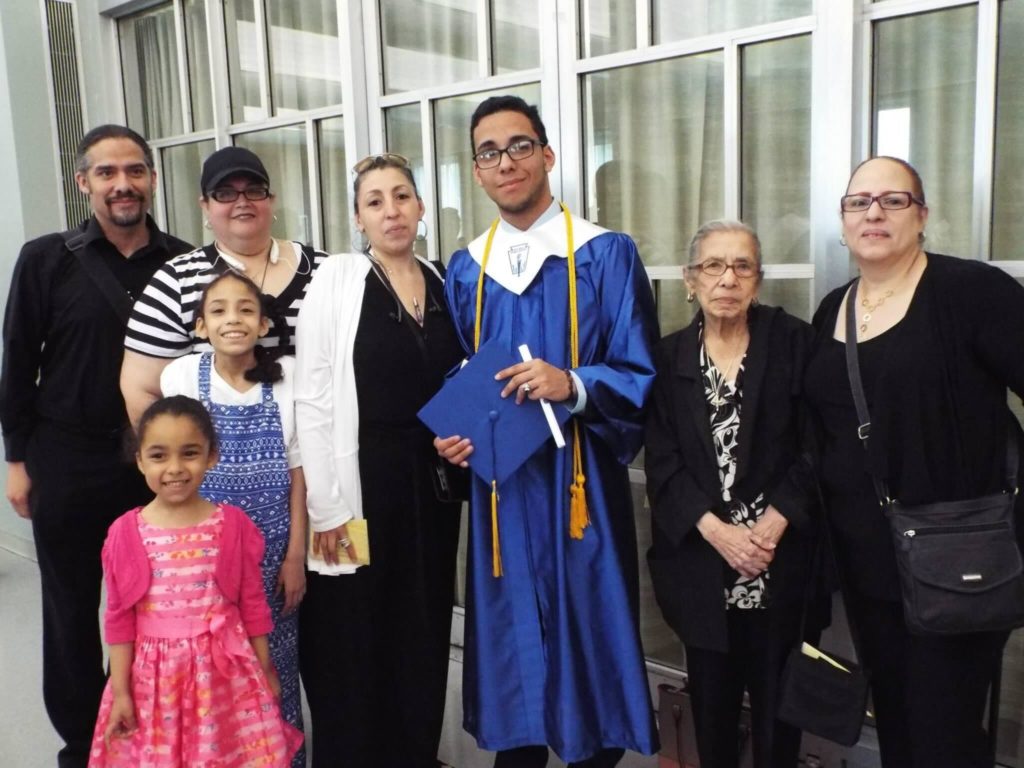
2. What has your experience been like growing up within the Hispanic community?
My culture is there if I want it, and I was never forced into it. Certain things, like family, are very important in Hispanic culture. It’s instilled from an early age to respect your family, especially your parents. I’ve also seen many different types of Hispanic communities growing up in the Bronx. In high school, my friends came from many different backgrounds, and my best friend was Dominican.
Music and dancing are very important in Hispanic culture, you have to know how to dance the bachata, merengue, salsa, etc. There are always a lot of parties and dancing, and being a part of them is very much a part of the culture. Rice and beans are also a staple in the community—across every group, there’s some variation of this classic dish. And if you don’t like it, good luck!
3. Can you share your perspective on the diversity within the Hispanic community?
There are a lot of differences and similarities within the Hispanic community. Growing up Puerto Rican in the Bronx is different from growing up as a Puerto Rican in Texas or Puerto Rico. Even though I grew up learning Spanish, I am still always learning because there are so many different sounds and slang across backgrounds. Food is a big part of the culture, and while there are a lot of similar dishes, everyone has a different name for them.
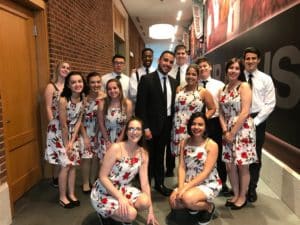
Growing up in the Bronx, I have been influenced a lot by other Hispanic cultures, like the Mexican and Dominican communities. We have so many different types of Hispanic backgrounds here that you get a mix of it all, and it kind of shapes you into one blend of backgrounds. Being involved and seeing what the other communities have to offer makes me feel like a more diverse Puerto Rican.
4. What does this month mean to you personally?
I like that it’s a time to be recognized for certain things, especially because there’s so much from the Hispanic community that doesn’t get brought up or talked about as often. There are a lot of things that the community has gone through that never get acknowledged, so this month is a great time to highlight that.
It’s a time for a celebration and for others to experience our food, dancing, and music. It gives people who are open-minded the chance to learn and experience new things. The Hispanic culture brings a lot to the US and the world, and it’s great to have a month to highlight it.
5. What are some ways we can learn and support Hispanic culture without appropriation?
Take the time to learn and try new things. You can do something as simple as trying a new food or try something a little harder, like taking a dance class. Be open-minded and ask questions, but also be supportive and respectful.
6. What Nonprofit supporting the Hispanic community would you like to highlight?
Hispanic Federation (HF), the nation’s premier Latino nonprofit membership organization.
Luisa Chil, Sr. Media Strategist
1. Can you share a bit about your own cultural identity?
My mom was born and raised in the Dominican Republic, and my dad was born and raised in Peru. My parents both left their respective countries when they were 19 years old–my mom moving to the US and my dad moving to Sweden. We eventually ended up back in the US after they got married and I was born.
I was raised in a very American home—my parents split when I was young, and we spoke English at home. Growing up, I didn’t really learn Spanish, and there was always a part of me that didn’t feel as integrated into the culture. There is, however, definitely a lot of Hispanic influence in parenting styles and how they show affection, which was easy to see from my mom.
Growing up, I visited Peru a couple of times, and in college, I did an exchange program there and stayed with my grandparents for a whole semester. That’s when I really started to feel more of a connection to my Peruvian heritage because I finally got to be near my grandparents, talk to them, and learn Spanish.
Now I feel very much a mix of all of these things. Peru feels like another home to me, but Dominican food is also a huge comfort and part of my life. I’m a mix of everything and still learning and uncovering my identity.
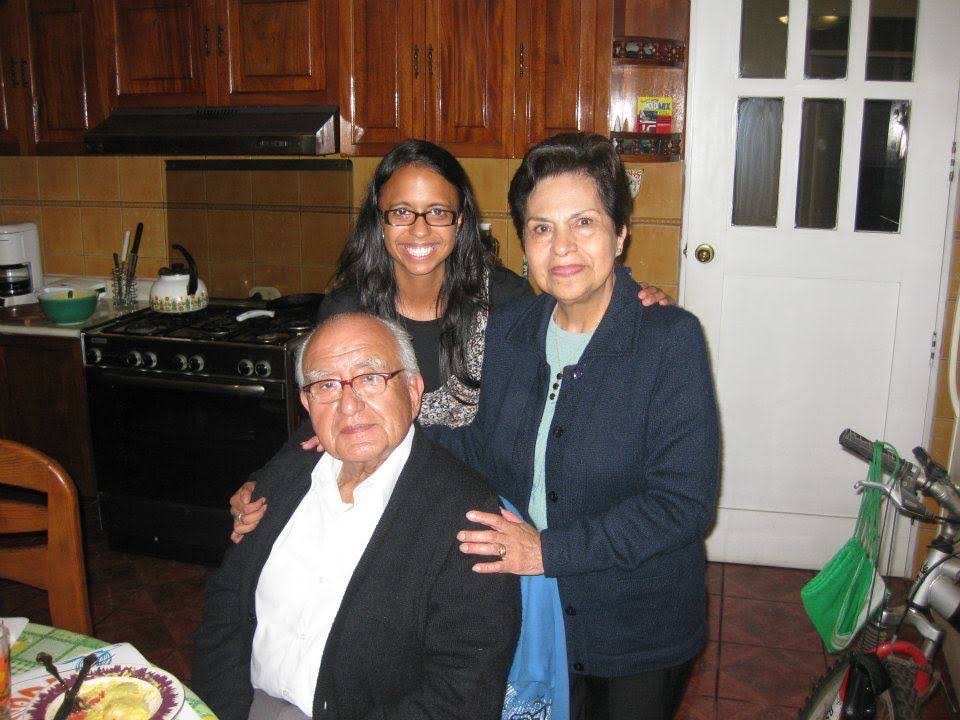
2. What has your experience been like growing up within the Hispanic community?
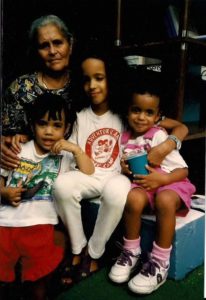
The sense of family within the community sticks out to me. I have over 70 cousins in my extended family—we don’t all know each other super well, but we have a group chat, and I know I could easily visit any of them and feel close and comfortable. Having that strong sense of family and looking out for each other is big in the Hispanic community. Everyone in the community becomes family quickly and looks out for each other.
I didn’t grow up with many Hispanic people outside my family. It was very different being with my immediate versus extended family, as my extended family provided me with more of my heritage. A lot of my family lived in New York, and when I was with them, I felt more in tune with my Dominican side because they were more immersed in the culture.
3. Can you share your perspective on the diversity within the community?
Every country has its own culture. While it’s common to group all Latinos together, there is a lot of diversity. Everyone has had different experiences that affect how they vote, act, etc.
Immigration stories can also vary a lot. My family immigrated here and assimilated more into the American culture. They focused very much on being American, but not all families are like that. Some immigrate and maintain their culture and keep speaking Spanish at home.
I think it’s important to understand the differences in the community and would like others to understand that every story and culture is different. It’s really hard to just lump all Hispanics and Latinos into one because it can mean a lot of very different things.
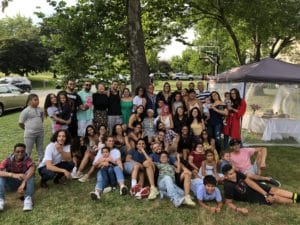
4. What does this month mean to you personally?
Every year it comes around, and just like any other month of celebration, I try to take advantage of the discussions that are happening and learning materials. I feel, especially in recent years, that I’ve heard a lot more perspectives and learned a lot more about the different communities.
For me, a lot of it has been learning that I can be more than one thing—and I’m still learning that. I’ve always felt that I had to fit into a certain group, and I’ve never really fit in with just one. I am learning and maturing enough to realize I can be a part of all of these groups. I remind myself that I am proud to be a part of this community, even if my experience might be different from others.
5. What are some ways we can learn and support Hispanic/Latinx culture without appropriation?
Really try to understand where the different cultures, foods, accents, and issues come from. You can tell when people or companies are being inauthentic. Try to be genuine as an individual and as an organization. Make sure that your internal policies support the same things that you’re doing externally and that the way you act matches what you’re saying. And lastly, be willing to change your behavior when you learn something is wrong.
